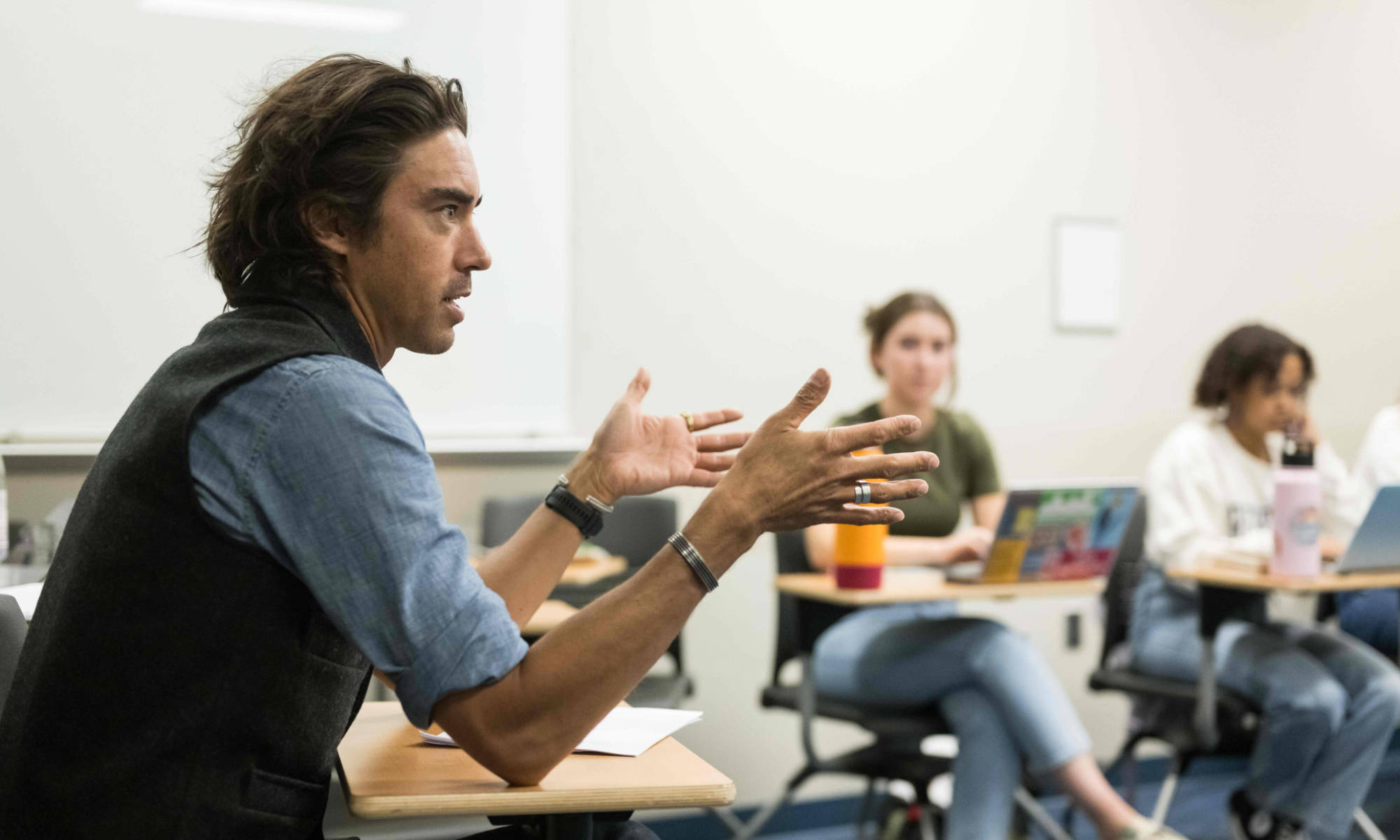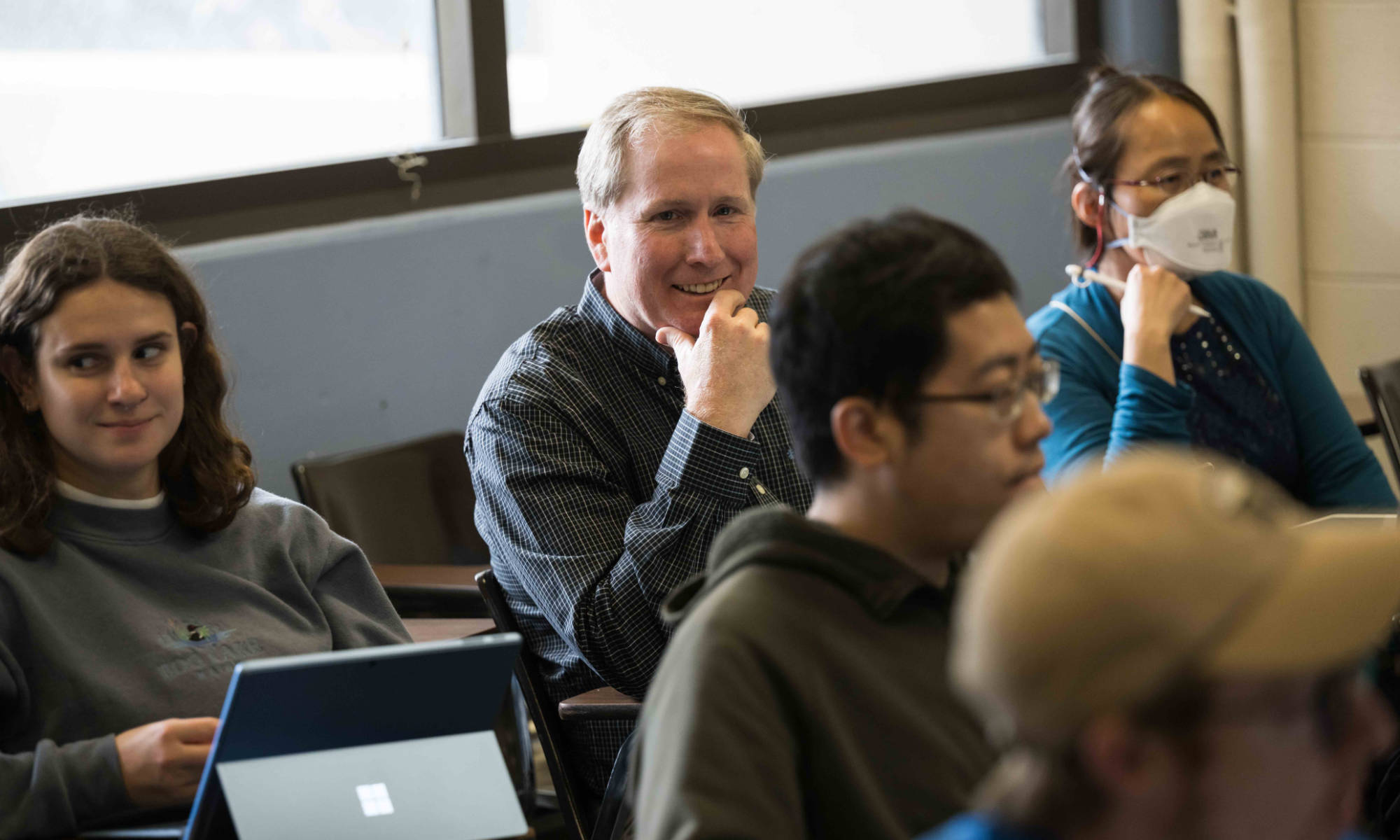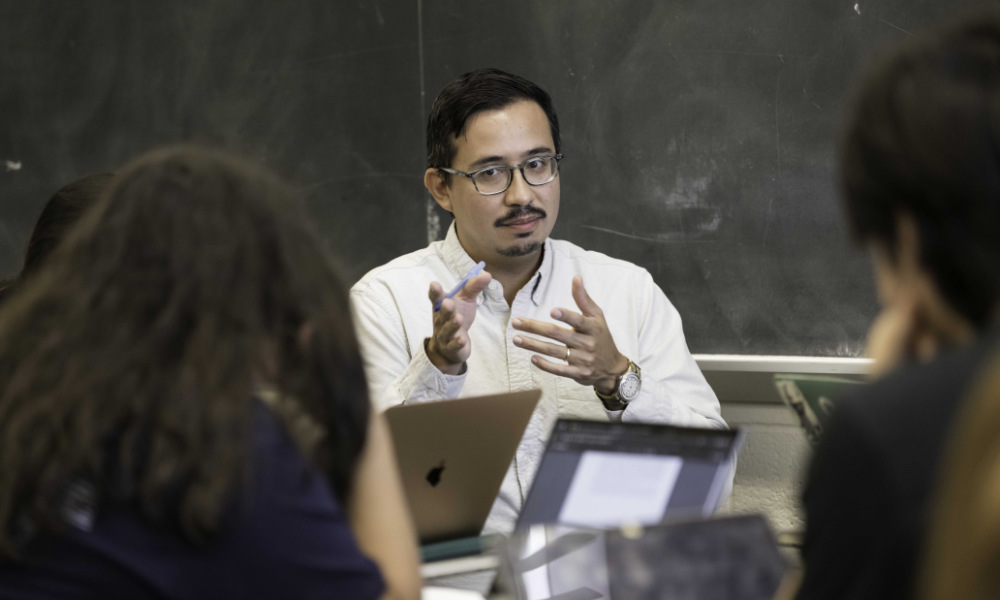The writing professor and self-described ‘nerd about pedagogy’ teaches students from across the globe about the value of all languages.
Whitney Gegg-Harrison ’14 (PhD) likes to generate a playful atmosphere in her writing classes at the University of Rochester.
“Silly games create engagement,” she says. “And students learn best when they’re engaged.”
In one exercise for her undergraduates, she asks each student to contribute an impromptu sentence that builds on the previous one. “In the end, we have a story that is often delightfully weird but also pretty cohesive, because each sentence picks up where the other left off,” says Gegg-Harrison, an associate professor with the Writing, Speaking, and Argument Program (WSAP).
A discussion follows on what features make paragraphs feel cohesive—and then the second part of the exercise begins. “We play with the paragraph, rephrasing sentences so that even though the same story is told, the cohesiveness falls apart,” she says.
In another exercise for an upper-level course titled Cognition and Writing, Gegg-Harrison asks students to write haikus and then describe their process—a “think-aloud protocol”—while using invisible ink pens. “It gets them to notice how much they rely on the text they’ve already written when trying to complete a sentence or paragraph,” she says. “The text on a page is kind of an ‘external’ working memory space, and that becomes obvious to them when we make it invisible.”
Gegg-Harrison’s methods reflect a passion for examining not only how we write, but also why we write.
“I’ve always been interested in the cognitive underpinnings of our ability to communicate via language, especially our understanding of others’ knowledge states,” she says. “It connects the work I did as a graduate student to the work I do now. Once students start playing with sentences, they’ll often notice particular grammatical patterns. And they delight in finding out that these patterns have a name—which is a key takeaway from the WRTG 105 exercise where students build a story with impromptu sentences.”
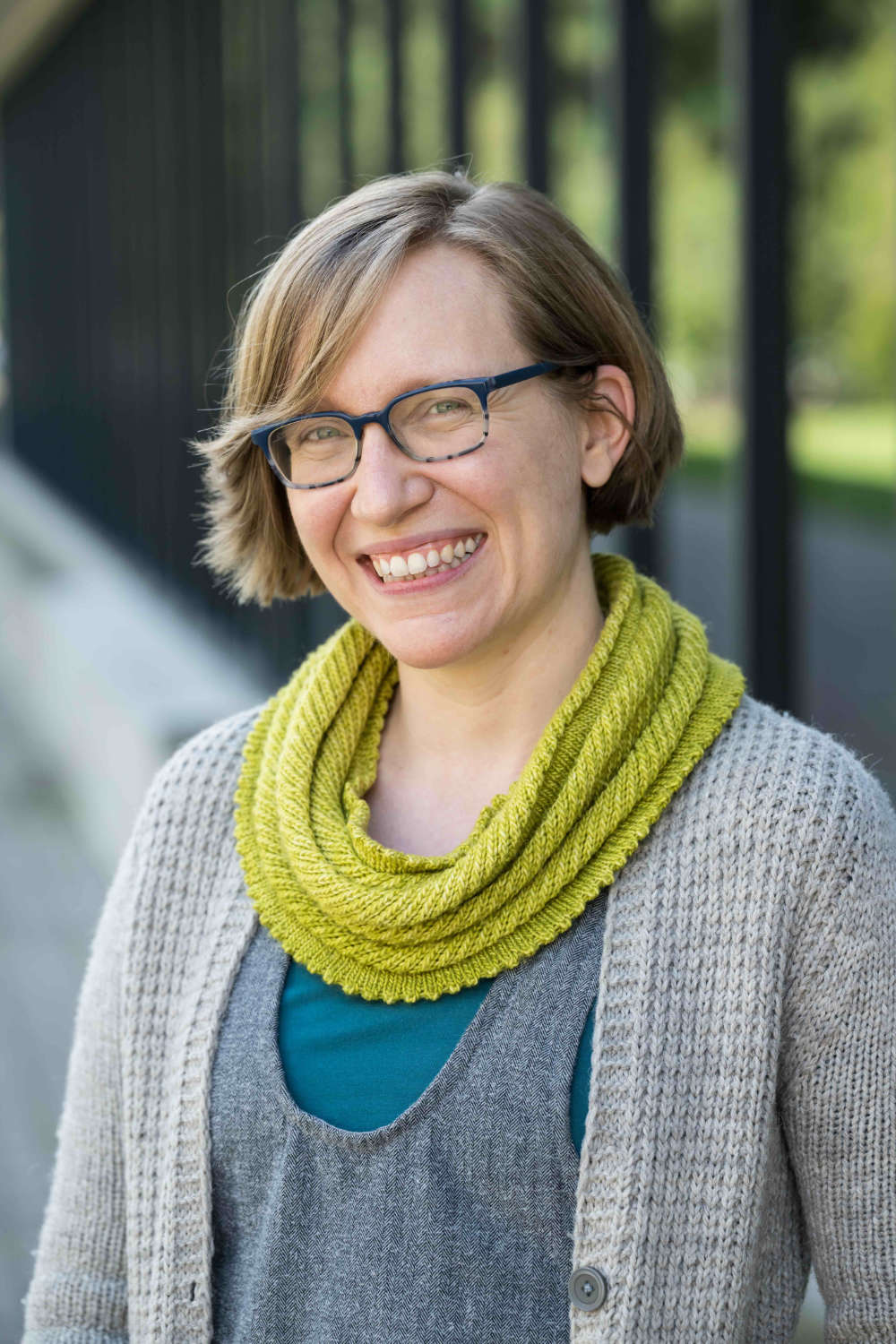
Coming by teaching honestly
It’s no surprise Gegg-Harrison knew early on she wanted to be a teacher. Both her parents were educators, and her brother is a math education professor at the University of Wisconsin–Eau Claire.
“It’s in the blood,” she says. “I started tutoring kids when I was in middle school. And in high school, I was the violin teacher for fourth graders at the Montessori school where my mother worked.”
She earned an undergraduate degree in linguistics at Ohio State University, but it was a minor in cognitive science that struck a chord. She came to Rochester for graduate school, where she earned a doctorate in brain and cognitive sciences. “My dissertation was about how we keep track of what our conversation partner knows, so that we can refer to things in a way they will understand,” she says.
Gegg-Harrison is a self-proclaimed “nerd about pedagogy,” one who is always seeking to better herself as a teacher. Each semester, she asks students to fill out surveys assessing which aspects of her teaching are working—and which could be done differently.
“In this way,” she says, “I’m able to model for students an openness to receiving sometimes uncomfortable feedback. A large part of my role is to give students the constructive feedback they need to become better, more effective writers. But I also need to listen to the feedback my students give me, so that I can make class work better for them.”
She has an insatiable appetite for learning—and for sharing what she’s learned. “Once I’m fascinated with something, I’m driven to want to teach others about it,” she says.
Deborah Rossen-Knill, executive director of WSAP, says Gegg-Harrison is an exceptional teacher due to her passion and creativity. “Without a doubt, Whitney is one of our most energetic, innovative, and effective instructors. She is wonderfully inventive in her approach to teaching grammar, punctuation, and language diversity,” she says.
Cultivating curiosity about languages
Gegg-Harrison teaches multiple sections of WRTG 105, the only course all undergraduates in Arts, Sciences & Engineering must take as part of the Rochester Curriculum. Her sections are titled Language as a Window into the Mind.
“I love that I get to teach students from a wide variety of backgrounds and from all over the world,” she says. “We discuss what language reveals about the mind, and have debates about whether the language you speak shapes the way you think. And we learn about how English works by comparing it to other languages. I want students to leave with a curiosity about language, while also knowing that all languages are equally good and valid.”
Undergraduates at Rochester get to choose their 105 class. Some are targeted to students who want a higher-level of writing support; others sections are better suited to students who prefer a slower pace. Gegg-Harrison’s students come from a variety of majors. “I really like that mix,” she says. “It means we can really dig into things like genre differences in writing from different majors in a way that allows students to share the expertise they have from their particular experiences with writing so far.”
Some of her undergraduates speak multiple languages, while others only speak English.
“I really love creating opportunities for all of the students to learn from each others’ linguistic backgrounds and expertise,” she says.
Because Gegg-Harrison loves learning as much as teaching, she constantly seeks out ways to improve her methods, including through national pedagogy workshops and conferences. “I’ve been teaching this course since 2010, but it’s the same class in name only, right? It’s always evolving,” she says. “Now we’ve got artificial intelligence, ChatGPT, and all these other tools. So, I’m always updating the class to accommodate what we know now.”
As a child, Gegg-Harrison was once brought to tears after realizing she could never experience the way another person views the world. But through language and teaching, she gets as close as she can. “I can’t experience the world through anyone else’s mind or eyes, but I can have them tell me about their experience through language,” she says. “And I just think it’s miraculous that we’re able to do that.”
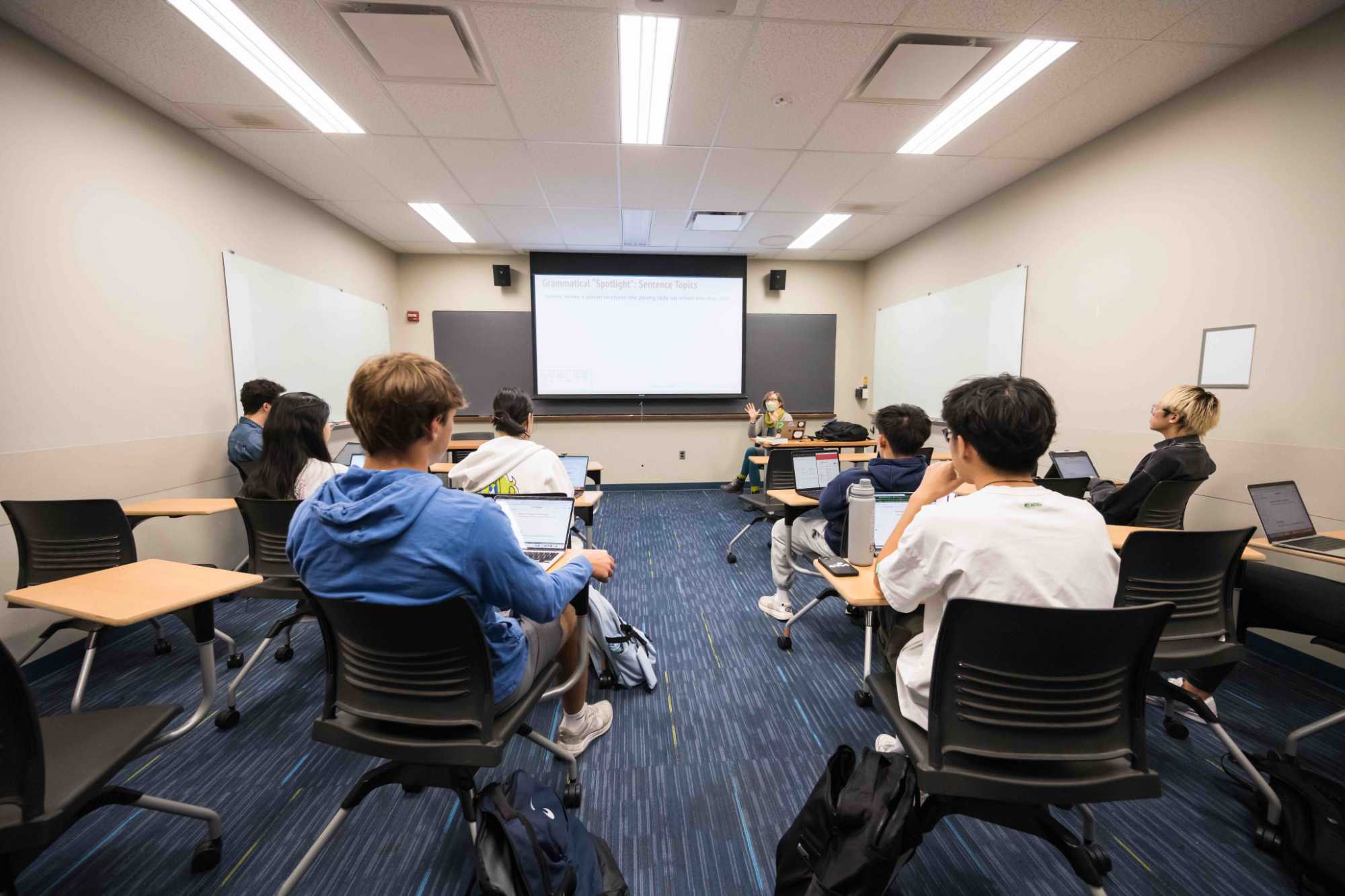
What Whitney Gegg-Harrison’s students say
“The structure of the class that Professor Gegg-Harrison created was wonderful and something that I have continuously come back to when approaching writing. Her methods in pedagogy were very influential and kept the class focused and organized to maximize learning for everyone. In the end, though, the most lasting impact she had on me was confidence. Coming into college, I was not confident in my writing. While I liked my ideas, I was never sure if I could share them in a way that people would understand. After taking her class, I have gained that necessary confidence and, if I like the topic, I look forward to writing essays and sharing my thoughts.”
—Carina Giordano ’25“It’s sometimes thought among students that an instructor can either be kind or strict, but never in the middle. With Whitney Gegg-Harrison, you feel cared for and respected as a student, but you also receive thorough constructive feedback and clear grading criteria that motivate you to constantly improve your work and propel your academic skills forward. The amount of attention she paid to my assignments was imperative for me to recognize where I was achieving my goals and where I had fallen short.”
—Munise Kosebalaban ’26“Her entire grading system is based on personal growth and improvement, and she offers plenty of opportunities for revision as well as always providing detailed and helpful feedback to encourage students to achieve their full potential on each assignment. She enthusiastically let students’ own interests guide their experience in the course and designed many important assignments to be flexible to her students’ preferences, both in modality and style of presentation, and in topic choice.”
—Needle de Carvalho Wang ’24 (T5)


